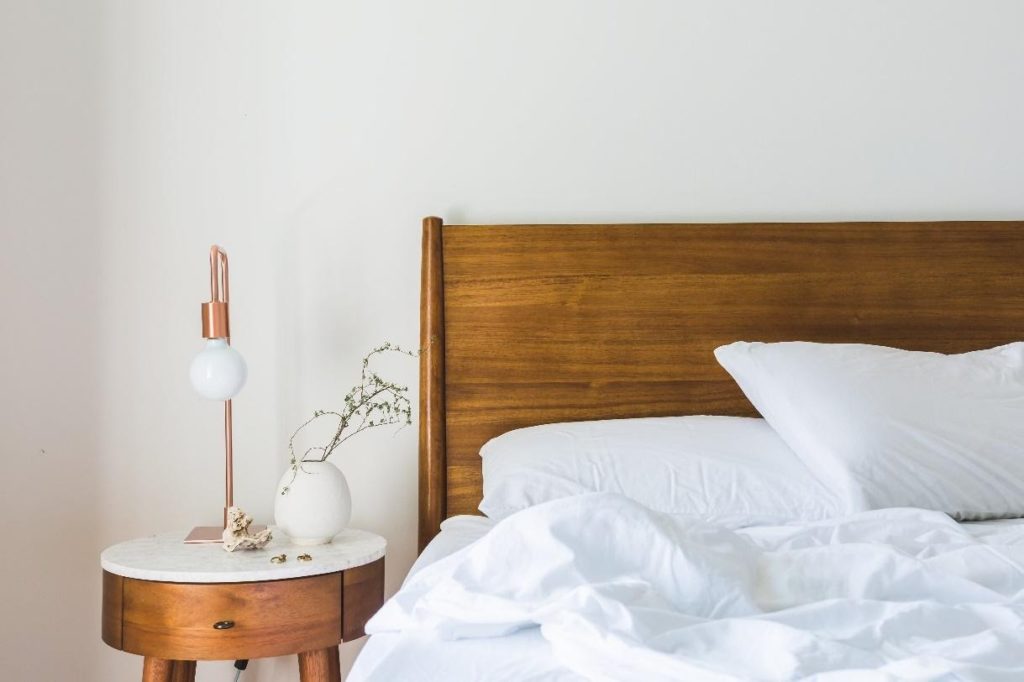26 de November de 2021
How Many Hours Do I Have to Sleep to Increase My Muscle Mass?
Normally we talk a lot about training and nutrition, we look for how to progress and perform more than ever, we investigate until we find articles with a reliable basis and get the most out of it, both for our athletes and for our own training. We agree that training and nutrition are two fundamental pillars and that as athletes we must keep in mind, but if we want our house not to fall, we need the third pillar: rest and recovery, sometimes forgotten or delegated to the background.
Sleep is probably the most basic and important form of passive recovery that the athlete can adopt. Passive rest aims to help athletes reduce fatigue and residual stress from training, enhance performance and better adapt the training performed, in addition to educating possible injuries arising from training. There is high scientific evidence of the multiple benefits that exist for recovery in the sports field to take a good night rest. But does rest influence my muscle mass gain?

And the answer to this question without a doubt is: yes, it influences so much more than you imagine. When we sleep, our body is in an anabolic state, that is, it focuses and uses all its resources towards reconstruction and regeneration of the nervous system, immune system and muscle tissue.
In addition to favoring that anabolic environment that will increase muscle development caused by training, rest prevents hormonal imbalance. Our body will secrete a set of hormones that will emphasize the process of protein synthesis, such as growth hormone, testosterone or melatonin. All of them increase their segregation when we sleep and are responsible in a certain way to help you with that “set-up”, that is, with a correct cell regeneration.
The American Society for Sleep Medicine and Sleep Research determined in 2015 that lack of sleep and disruption of circadian rhythms could affect the level of cardiovascular health, metabolic health, immune health, general health, perceived pain scale, and mortality. This means that our hours of sleep and its quality have a great impact on our lives and our overall health.
How much sleep I need to increase muscle mass?
There is no exact number of hours of sleep, since the amount of time we need to sleep will depend on each person and many factors influence, such as age, level of physical activity, etc. Still, there are general recommendations that we can bear in mind:
- Newborns and up to 3 years old, would need about 16 and 12 hours, respectively.
- In adolescence around 9 hours.
- For most adults, 7 or 9 hours of sleep should be met, and health, well-being and performance should be compromised if these are decreased (Hirshkowitz et al., 2015).
- A greater need for sleep has been suggested in athletes to allow adequate recovery and adaptation between exercise sessions, establishing this between 9-10 hours of sleep (Bird, 2013)

And now that you know the importance and all the benefits of a good sleep, you may be wondering: And if I have trouble sleeping, how can I improve my sleep?
How to improve my rest
This is one of the doubts that arise very commonly in those people who want to improve their sleep, but do not know where to start. There are quite a few factors that can negatively affect sleep, so it is important that you keep these considerations in mind:
- Avoid screens at night: Using electronic devices before bed has been associated with poorer sleep quality, sleep loss, and increased daytime fatigue. It has been seen that the emission of blue light, such as that emitted by mobile devices, can interfere with circadian rhythms and reduce melatonin production by up to 22% in 2h, which increases alertness and disturbs sleep (Exelmans & Van den Bulck, 2016). The effect can be greater when combined with the use of social networks, increasing the state of stimulation and emotional arousal.
- Psychosocial stress: in our day to day, we are subjected to a large number of stimuli and situations that, sometimes, can reach very high degrees of stress and anxiety. Knowing how to control these situations is essential, not only to ensure that it does not negatively influence our sleep, but also to achieve a better quality of life. Reflect on what your main daily concerns are and where they originate, reframe your problems, or try to come to terms with the situation if there’s something you can’t change.
- The consumption of stimulant substances such as, for example, caffeine, taken from certain hours, especially in responding subjects, can interfere with sleep due to its central action on adenosine receptors, increasing the waking state. If we don’t want this to interfere with the quality of our rest, we must try to limit caffeine consumption by giving a margin of at least 6 hours between the last intake and the time to fall asleep.
Trying to control and avoid these factors that can affect the quality of our sleep, we can also and should also opt for strategies such as:
- Acquire a routine and a regular schedule when going to bed and waking up, thus favoring the accommodation of our internal clock.
- The sleep environment is important, the room should be a cool, silent and dark place, thus avoiding possible interruptions in our rest. Try to keep the room at a temperature that induces sleep, below 21ºC.
- Expose yourself to sunlight during the day; Sunlight (10,000 lux) not only helps us sleep better, it also influences numerous physiological variables, for example, it stimulates the production of serotonin in the hypothalamus, improving our sense of well-being.
Undoubtedly, sleep is considered the best recovery strategy, therefore, acquiring a regular schedule when going to bed and waking up, taking naps of 20-30 minutes or melatonin supplementation on certain occasions, which we will talk about in more depth later, can be very beneficial probably affecting the performance and health of the athlete.

If you still find it difficult to fall asleep, there are some supplements that can help. Before resorting to any type of supplement, we recommend that you try to improve your sleep quality by modifying your habits and daily routines so that your rest does not depend on an external agent such as supplementation.
- Infusions: it is the most conventional option and can be taken daily. They can help you sleep better with faster sleep induction.
- Magnesium: has a calming effect on the nervous system, and multiple studies show its effectiveness in fighting insomnia and facilitating sleep. Its recommended intake is 200-400mg a couple of hours before bedtime.
- Melatonin: also known as the sleep hormone. This is a hormone that our body produces naturally and that rises at night to indicate to the body that it is time to sleep, but sometimes due to external factors as we have talked about above, they can alter its appearance in the body, reducing its production. You can start with 1mg for a few days, if the problem persists, use doses of 3-5mg, but do not make it a habit since after all it is a hormone and there are doubts about the effects in a long run.
- Vitamin D: If you have little sun exposure and have trouble sleeping, you may have vitamin D deficiencies. This deficiency represents the first most frequent nutritional deficiency in developed countries and is associated with insomnia. You can start with a dose of 1000IU a day.
Bibliography:
- https://www.sleepassociation.org/about-sleep/what-is-sleep/
- Godfrey, R. J., Madgwick, Z., & Whyte, G. P. (2003). The exercise-induced growth hormone response in athletes. Sports medicine (Auckland, N.Z.) , 33(8), 599–613. https://doi.org/10.2165/00007256-200333080-00005
- Fernando Mata-Ordoñez1, Pedro Carrera Bastos2, Raúl Domínguez3, Antonio Jesús Sánchez-Oliver4; Importance of sleep in the performance and health of the athlete

